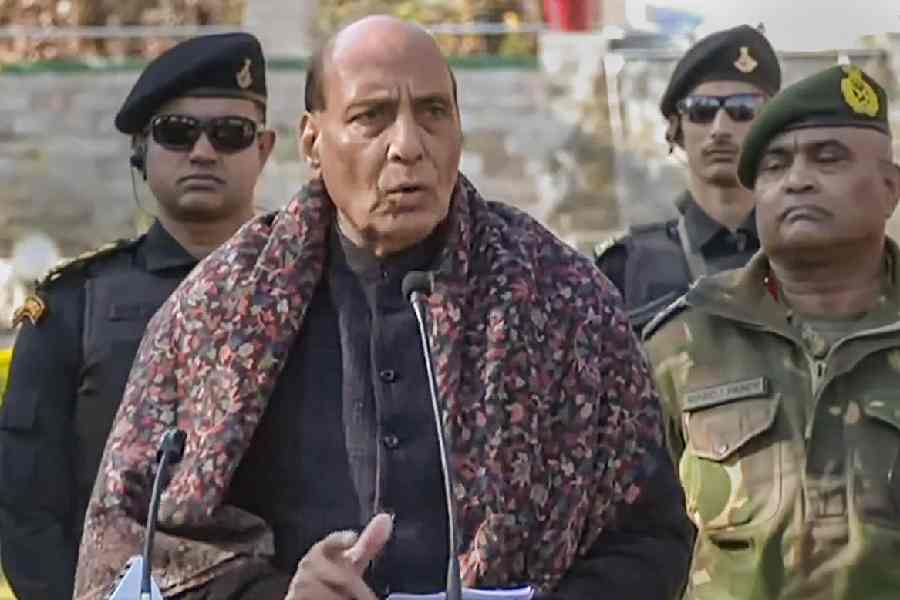The Union defence minister, Rajnath Singh, has called upon the Indian army to act with responsibility towards civilians. Mr Singh’s call came in the wake of disturbing news from Jammu and Kashmir’s Poonch district where three young civilians were found dead after they had been taken by the army during an anti-terror operation. The deaths sparked outrage within the local community — the Gujjars are considered to be significant electorally — and added to the grievances of Kashmiris who have often felt particularly alienated in recent years with mainstream politics in the Valley almost suspended following the abrogation of Article 370. Mr Singh has directed the army headquarters to ensure a probe that is timebound and impartial. This is important given the fact that the anger and the concerns of civilians are justified. Far too often, India has allowed the real challenge of combating terrorism to obscure the equally vital task of making Kashmiris believe that the State treats them as civilians and accords them the same rights and dignities that other Indian citizens enjoy in other parts of the country. Consequently, actions that embarrass the best traditions of the Indian security forces not only have been allowed to occur but also seem to have had tacit endorsement. A case in point was the incident in April 2017 in which an Indian army officer tied a Kashmiri man to the front of his vehicle, using him as a human shield. The officer in question received an award soon after.
Mr Singh has rightly said that in Kashmir, the military’s duty is also to win hearts and minds. That does not mean going soft on terrorists. On the contrary, it means behaving with the utmost sensitivity towards civilians in the knowledge that the most effective way to defeat separatists is to convince their target audience that there is no need to fight the State. Significantly, this is not a challenge limited to Kashmir. The army has promised an investigation into the Poonch incident but probes launched by security forces into alleged wrongdoing by soldiers have often remained shrouded in opacity. Instead of accountability towards the nation, what is usually emphasised is the desire to not damage the morale of the forces by imposing punishments. This only encourages rogue acts by some members of the army that takes pride in its professionalism. India can no longer ignore the need for transparency and accountability within its security forces. That is a prerogative of democracy. The powers that be should also look at the rationale for the army’s deployment in some instances. Deploying a force, which is meant to guard the borders, in domestic engagements runs the risk of collateral damage.











